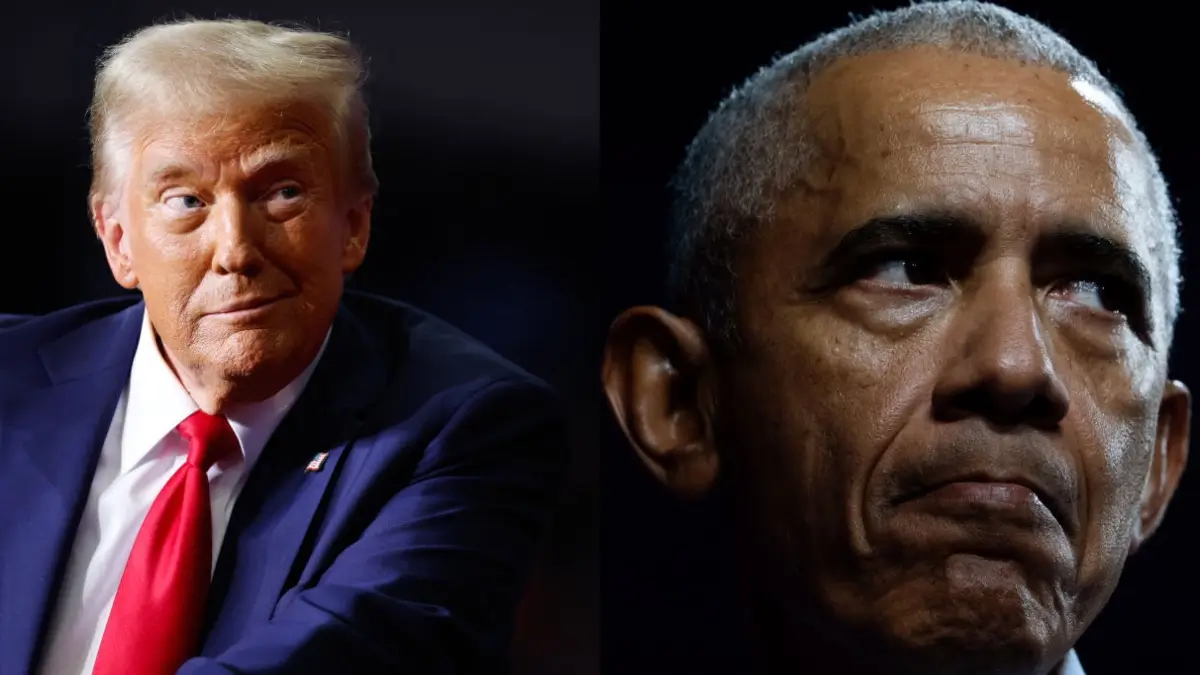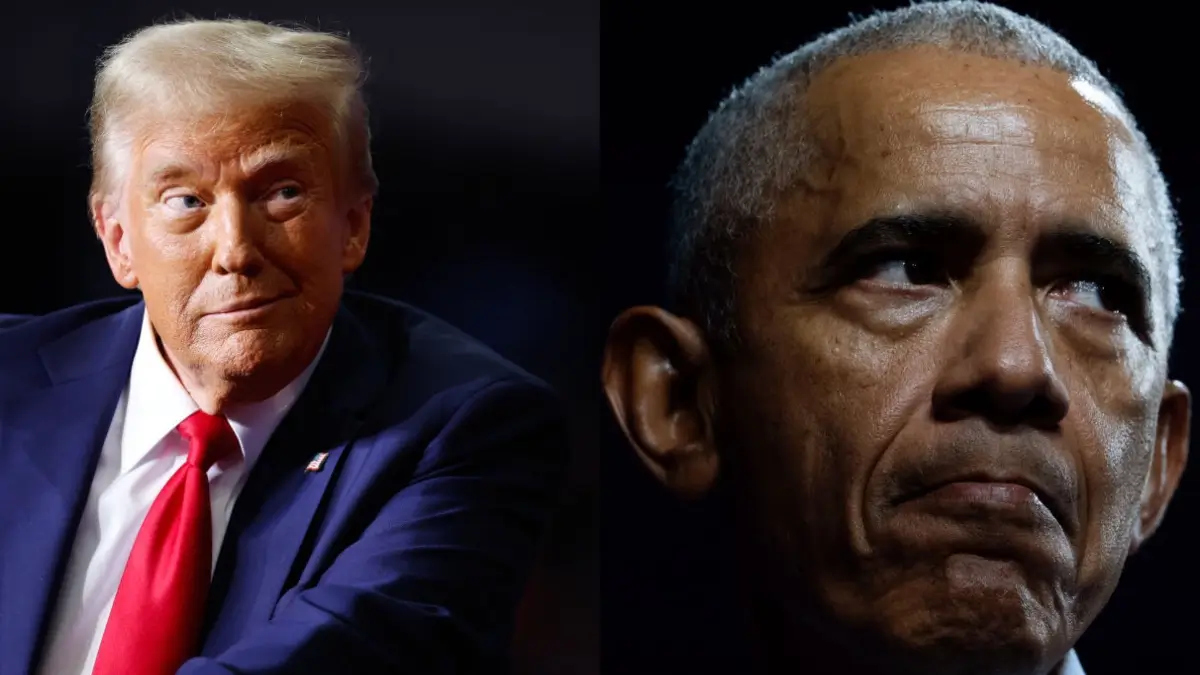Did White Resentment Over Barack Obama Presidency Lead to Donald Trump Election? Some Say Blowback over First Black President Still Persists: ‘Something Shifted… In This Country’
Was the re-election of a former president intent on getting retribution against his political rivals made possible by lingering white resentment of the nation’s first Black president?
According to some political observers, that rage is at least partly responsible for Trump II: Donald’s Revenge, the sequel many fear will be far worse than the original. The tagline #becauseObama was trending on X Thursday afternoon, although interpretations of that meme varied.

A post by The Neighborhood Publicist, which had registered nearly 200,000 views as of late Thursday afternoon, captured the gloomy mood shared by many online progressives:
“Having Obama as President was not worth what has come with it. That sh-t sent these mofos into overdrive. They were crazy before that, but the minute he won, something shifted so drastically in this country, and we are paying for it.”
Barack Obama regret may not be widely shared, but those who view Trump’s re-election as a validation of America’s worst impulses can’t help but wonder if the promise of Obama’s election is worth the pain of four more years of Trump.
It’s an opinion based on the belief that the president-elect’s support is rooted in a deep-seated animosity toward racial minorities, immigrants, and Muslims. It’s that same hate that fueled so much of the opposition to Obama, from the creation of the Tea Party to the birther movement.
Political scientists have been of two minds on this question since Trump shocked the world by defeating Hillary Clinton eight years ago.
For many, Donald Trump‘s rise and resurgence is directly related to economic uncertainty, as The New Yorker’s George Packer wrote in 2016.
“The base of the [Republican] Party, the middle-aged white working class, has suffered at least as much as any demographic group because of globalization, low-wage immigrant labor, and free trade,” Packer surmised. “Trump sensed the rage that flared from this pain and made it the fuel of his campaign.”
Philip Klinkner, a political scientist at New York’s Hamilton College, found that economic pessimism had little to do with Trump’s first electoral victory. Party identification was the chief reason, Klinkner said, followed closely by racial resentment.
“Moving from the least to the most resentful view of African Americans increases support for Trump by 44 points,” he wrote. “(T)hose who think Obama is a Muslim (54 percent of all Republicans) are 24 points more favorable to Trump, and those who think the word ‘violent’ describes Muslims extremely well are about 13 points more pro-Trump than those who think it doesn’t describe them well at all.”
But is that true in 2024? After all, it wasn’t just his traditional base of white, working-class voters who fueled his re-election. Despite a campaign that often trafficked in racist tropes, Trump made significant inroads with minority groups — particularly among young men — that, four years ago, tilted heavily to Joe Biden.
Trump roughly doubled his support among Black men under 45 as compared to 2020, with about 3 in 10 in this demographic voting for the GOP candidate, the Associated Press reports. And 45 percent of Hispanics voted for Trump, an increase of 13 percent from 2020 and a new record for a Republican presidential candidate.
Even Arab-American voters swung big to Trump, overlooking his proposal prohibiting travel and refugee resettlement from certain majority Muslim counties. In Dearborn, Michigan, a Detroit suburb where over half the citizenry hails from the Middle East, Trump received 42 percent of the vote, six points higher than Kamala Harris. (Green Party candidate Jill Stein received 18 percent support.)
The only racial demographic where Trump lost support? White voters, 55 percent of whom voted for him in 2024, a three percent drop from 2020, according to NBC exit polls.
Considering those numbers, is racial resentment still the driver it once was? Empirically, it’s too early to know.
But regardless of what those studies eventually show, many on the left are convinced that racist and/or sexist voters made the difference in Trump’s favor.
“The first time Americans voted for Trump, it was a backlash because Obama was an intelligent Black President who they hated,” one commenter on X wrote. “The 2nd time they voted for Trump was also a backlash because it’s an intelligent Black Woman they hate as well.”

